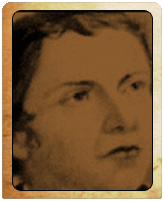
Hugh Mercer (January 17, 1726 - January 12, 1777) was a physician, a brigadier general in the Continental Army and a close friend to George Washington. Mercer died as a result of his wounds received at the Battle of Princeton and became a fallen hero and rallying symbol of the American Revolution.
The American Revolution
Before the New York Campaign, Washington ordered two forts built to repel the Royal Navy. On the New York side of the Hudson River, Fort Washington was constructed, and Mercer himself oversaw the building of the earthen fortification on the New Jersey side, named Fort Lee. Though bravely defended, the British captured Fort Washington on November 16, 1776, and the Americans abandoned Fort Lee four days later. The retreat to New Jersey became known as "the Crisis of the Revolution", because the enlistments of most of Washington's beaten and down-trodden soldiers ended on New Year's Day 1777.
There are rumors that Mercer exclusively originated Washington's daring plan to cross the Delaware River and surprise the Hessians at the Battle of Trenton on December 26, 1776, and he was certainly a major contributor to its execution. Because of the win at Trenton (and a small monetary bonus), Washington's men agreed to a ten-day extension to their enlistment. When Washington decided to face off with Cornwallis during the Second Battle of Trenton on January 2, 1777, Mercer was given a major role in the defense of the city.
The next day, January 3, Washington's army was en route to Princeton, New Jersey. While leading a vanguard of 350 soldiers, Mercer's brigade encountered two British regiments and a mounted unit. A fight broke out at an orchard grove and Mercer's horse was shot from under him. Getting to his feet, he was quickly surrounded by British troops who mistook him for George Washington and ordered him to surrender. Outnumbered, he drew his saber and began an unequal contest. He was finally beaten to the ground, then bayoneted repeatedly - seven times - and left for dead.
When he learned of the British attack and saw some of Mercer's men in retreat, Washington himself entered the fray. Washington rallied Mercer's men and pushed back the British regiments, but Mercer had been left on the field to die with multiple bayonet wounds to his body and blows to his head. (Legend has it that a beaten Mercer, with a bayonet still impaled in him, did not want to leave his men and the battle and was given a place to rest on a white oak tree's trunk, while those who remained with him stood their ground. The tree became known as "the Mercer Oak" and is the key element of the seal of Mercer County, New Jersey.)
When he was discovered, Mercer was carried to the field hospital in the Thomas Clarke House (now a museum) at the eastern end of the battlefield. In spite of medical efforts by Benjamin Rush, Mercer was mortally wounded and died nine agonizing days later on January 12, 1777.
Because of Mercer's courage and sacrifice, Washington was able to proceed into Princeton and defeat the British forces there. He then moved and quartered his forces to Morristown in victory. Because of those victories, Washington's army reenlisted, the French finally approved arms and supplies to the Americans and a stunned Cornwallis pulled his forces back to New York to reassess the surprising American successes. The "crisis" had ended, America had the means to fight, and British public support for the war slowly began to wane. A portrait by Charles Willson Peale entitled Washington at the Battle of Princeton, January 3, 1777 allegedly shows the dying Mercer behind Washington-Mercer portrait being based on a brother. Ironically James Peale painted a version of "Battle of Princeton" which shows in the background a very indistinct portrait of Mercer being helped from the ground.
Family lineage and heritage
Succeeding generations of Mercer's family have distinguished themselves. Famous direct descendants of Hugh Mercer were Waller T. Patton and his brothers George Smith Patton and John Mercer Patton, who in turn were ancestors of General George S. Patton, Jr. Other direct descendants include Confederate General Hugh Weedon Mercer and songwriter Johnny Mercer.
PREVIOUS: John Sullivan | Hugh Mercer | Biographies
